Zola is to me so vast a theme that I can only hope here to touch his work at a point or two, leaving the proof of my sayings mostly to the honesty of the reader. It will not require so great an effort of his honesty now, as it once would, to own that Zola's books, though often indecent, are never immoral, but always most terribly, most pitilessly moral. I am not saying now that they ought to be in every family library, or that they could be edifyingly committed to the hands of boys and girls; one of our first publishing houses is about to issue an edition even of the Bible "with those passages omitted which are usually skipped in reading aloud"; and it is always a question how much young people can be profitably allowed to know; how much they do know, they alone can tell. But as to the intention of Zola in his books, I have no doubt of its righteousness. His books may be, and I suppose they often are, indecent, but they are not immoral; they may disgust, but they will not deprave; only those already rotten can scent corruption in them, and these, I think, may be deceived by effluvia from within themselves.
It is to the glory of the French realists that they broke, one and all, with the tradition of the French romanticists that vice was or might be something graceful, something poetic, something gay, brilliant, something superior almost, and at once boldly presented it in its true figure, its spiritual and social and physical squalor. Beginning with Flaubert in his "Madame Bovary," and passing through the whole line of their studies in morbid anatomy, as the "Germinie Lacerteux" of the Goncourts, as the "Bel-Ami" of Maupassant, and as all the books of Zola, you have portraits as veracious as those of the Russians, or those of Defoe, whom, indeed, more than any other master, Zola has made me think of in his frankness. Through his epicality he is Defoe's inferior, though much more than his equal in the range and implication of his work.
A whole world seems to stir in each of his books; and, though it is a world altogether bent for the time being upon one thing, as the actual world never is, every individual in it seems alive and true to the fact. M. Brunetiere says Zola's characters are not true to the French fact; that his peasants, working-men, citizens, soldiers are not French, whatever else they may be; but this is merely M. Brunetiere's word against Zola's word, and Zola had as good opportunities of knowing French life as Mr. Brunetiere, whose aesthetics, as he betrays them in his instances, are of a flabbiness which does not impart conviction.
Word for word, I should take Zola's word as to the fact, not because I have the means of affirming him more reliable, but because I have rarely known the observant instinct of poets to fail, and because I believe that every reader will find in himself sufficient witness to the veracity of Zola's characterizations. These, if they are not true to the French fact, are true to the human fact; and I should say that in these the reality of Zola, unreal or ideal in his larger form, his epicality, vitally resided. His people live in the memory as entirely as any people who have ever lived; and, however devastating one's experience of them may be, it leaves no doubt of their having been.















